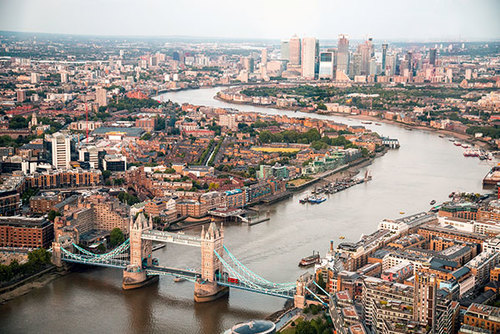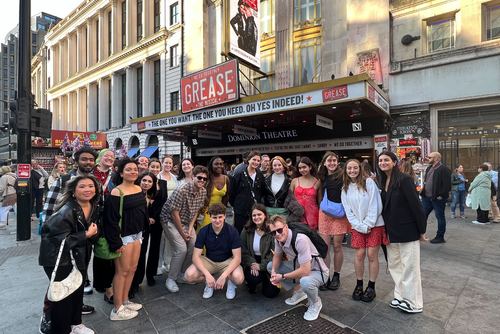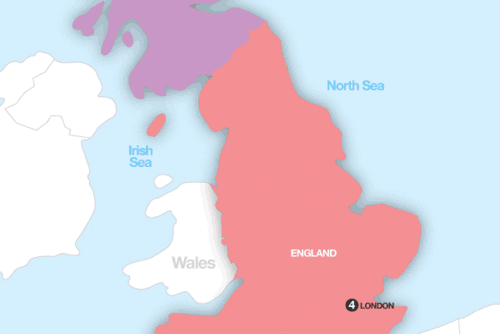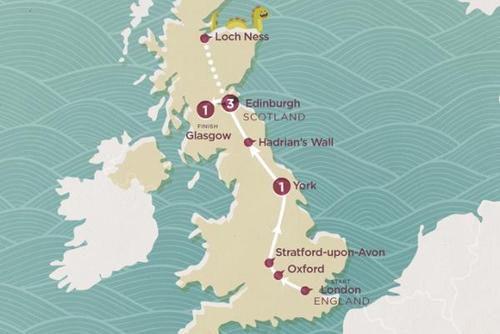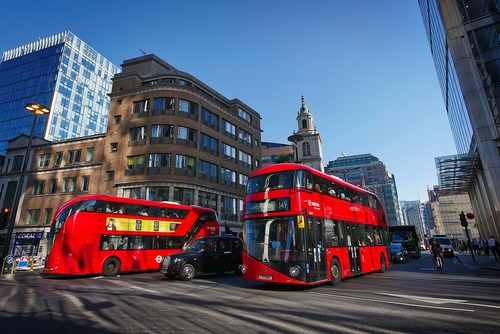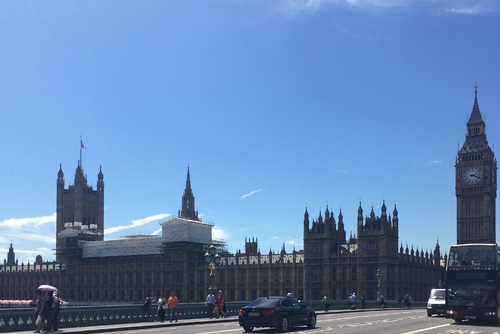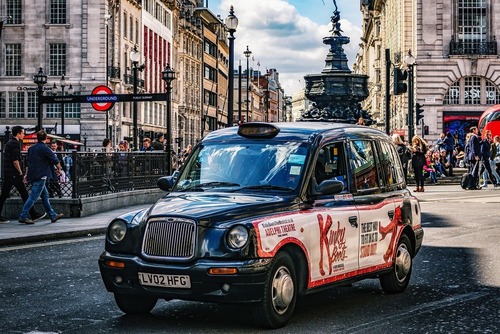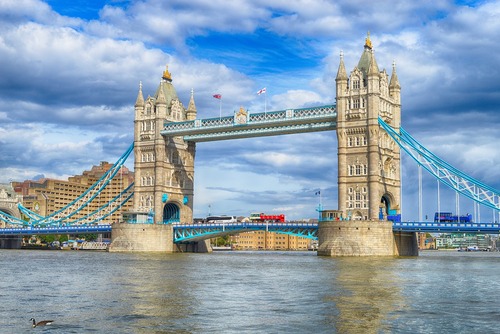Intern in London
So you want to join an internship? London is an amazing city to learn and experience and there are so many options available. London is one of the few destinations in the world where you can gain international experience in some of the largest global companies in the world. Companies where you can intern vary from small family run firms which provide an all round practical experience, to large multinationals.
London is of the most sought after cities in the world to intern, landing an internship here will really boost your CV/resume and boost your future prospects but positions are highly competitive so you will need to view our top tips on how to be successful. Expect competition to be high and taking part can be a really great way to gain hands on work experience which can help with getting on track to a right career.
View our guide, search our featured internship programs and apply today.
Types of Intern Programs Available
Companies vary from small family run firms which provide an all round practical experience, to large multinationals and you can literally find a placement in most industries.
- Architecture
- Art & Design
- Administration
- Banking
- Business
- Charity & NGO's
- Computing & IT
- Education
- Engineering
- Fashion
- Finance & Accounting
- Hotel & Catering
- Human Resources
- Insurance
- International trade
- Law & Human Rights
- Marketing
- Media & Journalism
- PR & Advertising
- Sales
- Sport
- Travel & Tourism
Best Places to Intern in London
Popular places to intern include areas like Central London e.g. Oxford Street, Holborn, Old Street, the City and more rural areas like Croydon where a lot of start ups are moving to.
Eligiblity / Requirements
All internships are different and it really depends on the provider as to the application criteria, usually you will need to fulfill these eligibility criteria:
UK Nationals:
- Age 18+
EU Nationals:
- Age 18+
- English Level: Intermediate IELTS 3.5+ or equivalent
Non-UK/EU Nationals:
- Age 18+
- English Level: Intermediate IELTS 3.5+ or equivalent
- Tier 5 Visa holders: Australia, New Zealand, Canada, USA, Japan, South Korea, Taiwan, Hong Kong
If you live outside of the EU, you will need a tier 5 intern visa to intern or work in London. The UK immigration system can seem complicated and getting accepted can be tough so you will need plenty of time to prepare your application and complete the nesessary paperwork.
Structured Internship Programs in London
Some companies offer structured internship placements to both UK and foreign nationals. Usually you will need to pay a fee for this service.
What's included?
- An internship in London in a sector matching your chosen career path
- Information, advice and support
- Multilingual internship placement officers
- 24-hour support & emergency contacts during the internship work placement
- Half-day orientation at a Training Centre
- Stipend (this is at the discretion of the company where you will be placed)
- Access to a Training centre – complete with IT suite (free wifi & internet access) and café area
- Twin Certificate of achievement (awarded on completion of the internship)
- Reference from employer
What's not included?
- Flights or Train Journeys
- Insurance (for EU Applicants from outside the UK)
- Sightseeing activities
Paid Internship in London
It is possible to get paid internships in London, some companies offer a basic salary whilst others will offer a stipend salary which should cover your transport and lunch. Due to the cost of interning in London is it important you either have savings, or get an internship which provides either a wage or covers your transport costs. It is very difficult to get a paid internship which will also pay for your accommodation.
Summer Internships in London
You will find summer internships are the most popular time throughout the year, this is because students both from the United Kingdom and from overseas take the summer break to help boost long term career prospects. You will need to apply months in advance for these positions to stand a good chance of securing a place.
Top Tips for Getting an Internship in London
- Make sure you are eligible for the placement (check criteria)
- Tailor your CV and cover leter
- Address your application to the hiring manager
- If you are struggling getting a foot in the door applying solo, pay an agency
London Internship Reviews
If you have ever been to intern in London and would like to review your experience, a company or agency please get in touch.
What is like to Do an International Internship in London
Maaike van Kuijk was only 19 when she applied for an internship in London. During her bachelor’s program in ‘International Tourism Management and Consultancy’ in the Netherlands, she was required to do a six-month internship abroad. Here she shares her top tips for participating on an international internship program in London.
Initially, I applied for two different internships, one at a tour operator in Malta and one at a luxury hotel and resort marketing and sales company in London. At that time, I didn’t have a preference which one it would be. But when I received the call from the marketing and sales company in London, I was literally jumping up and down in the air of pure joy: I was going to live in London for the next six months!
The enthusiasm quickly changed into anxiety. How was I supposed to find a place to live? How expensive was it going to be? How was I going to get all my stuff there? My university’s support only included internship addresses to contact, and a mentor who was going to supervise my placement assignments. The rest was all up to me.
Accommodation
When I knew the date I would start working at the company, I Googled for accommodation websites. I soon realized that London is a highly popular place to live, and most ads that would pop up one day, would be gone in a day or two. Another striking aspect I found, was that the costs of renting a room in a shared apartment is really expensive, even compared to the Netherlands. To give you an idea, you won’t be able to find a single room in a shared apartment under £400 a month (bills incl.).
The websites I used during my room search were spareroom.co.uk and uk.easyroommate.com. Why I chose these websites over gumtree.co.uk (also used often), was because I was able to be very precise in what I was looking for. You can for example search on area, tube zone (London has 6 tube zones. Zone 1 is Central London), kind of accommodation and distance to the public transport stations. I had heard from others that it is really important in London to be situated near a tube station. This will make it much easier for you to get to work every day. Looking back on it, I don’t believe you have to be situated near a tube station per se; it could also just be a train station. It just makes it a lot easier for you to get around and it increases your safety at night when you don’t have to walk for miles all by yourself to get to your home. If you get to stay at a place near a tube station with the connection that brings you directly to work, that’s a great bonus!
The other difficulty for me was to choose an area. Besides the one time I visited London (a one day-trip nonetheless), I had never been there before. How was I supposed to find the right area to live? I had heard horror stories about the wrong kind of neighborhoods in London and I sure didn’t want to end up living in any of those places. But how was I supposed to find out what these areas were? Luckily there are a few websites that can give you a short overview of the different areas, or boroughs, in London. A few examples are: londonsetup.com/london_accomodation_safety.html and stuckinlondon.com/londonareaguide/.
I would always recommend making an appointment with the landlord to visit any property that you are interested in. Although the photos of the room and the apartment may look beautiful on the website, this doesn’t mean that it always looks that nice in real life. I would also suggest to walk around in the area of the accommodation before you decide to rent the place. How far is the room from the tube/train station? How far away is it from any bus stops? What kind of shops are there? What kind of feeling do you get when you walk around there? This is a very important step in the decision making process.
When you’ve decided where you want to live, make sure to read the rental agreement carefully (also read the fine print!). Sign only when you know for sure that everything is in order.
Living expenses
To put it bluntly, London is an expensive city to live in. A single room in a shared apartment (from zone 3 on) will cost about £400 - £600 a month (bills incl.). Check with your school and internship company whether and how much money you will earn. I didn’t receive any salary from the company I was interning at, but I was eligible for a living away from home scholarship from the Dutch government. Check these things before you sign up for a placement.
In addition, groceries are very expensive as well in London compared to neighboring countries. It pays off to do your grocery shopping at a Lidl or at Aldi instead of supermarkets like Sainsbury’s or Tesco. Food and drinks at restaurants and bars are expensive too. However, if you want to go out but are on a budget, there are enough FREE museums, events and festivals to keep you occupied. Timeout.com/London and londonist.com keep you up to date on everything that is happening in town. And if you have a student card, you can get quite a lot of discounts too!
Getting around
To get around in the city, you would need an Oyster card. The Oyster card gives you access to the entire public transport system in London, such as the tube, busses, Overground trains and the DLR. You can top up this card as you go, or choose a 7-day, monthly or annual travel card. It depends on the zones you want to travel in how much this costs. A 7-day travel card for zones 1-4 for example costs £46.10 and £177.10 monthly.
You can top up your Oyster card at almost all tube and train stations in London at either a machine or at the ticket desk. When you travel, you just simply use your card to ‘touch’ in and ‘out’ at the gates of the tube/train stations or ‘touch’ in on the bus. It’s important to discuss the rights you have as an intern with your internship company. I for example received a free 7-day travel card from my internship company. This saved me a lot of money!
Living in London
To me, living in London was like a dream. I very much enjoyed my internship, as I was given quite a lot of responsibilities at the marketing and PR department, and was able to join some relevant courses and workshops along the way.
Luckily some of my friends did their internship in London as well (although some lived too far away from me, and I didn’t even see them during the time), and I was able to meet up with them quite often. However, I also wanted to meet ‘new’ people, so that’s why I decided to sign up at a local dance school. Joining a sports club or any other club for that matter, is a great opportunity to meet people other than your flat mates, fellow students and colleagues.
Every weekend, I was out and about, discovering all the beautiful sights and activities that London has on offer. Even now, three years later, I haven’t been able to check off everything from my bucket list. It’s probably no surprise then that I’ve decided to move back to my ‘second home’ once I’ve obtained my master’s degree later this year.
Advertise Here
Do you offer internships in London? If you would like to promote the placements to a wider audience please contact us.
Related Pages







